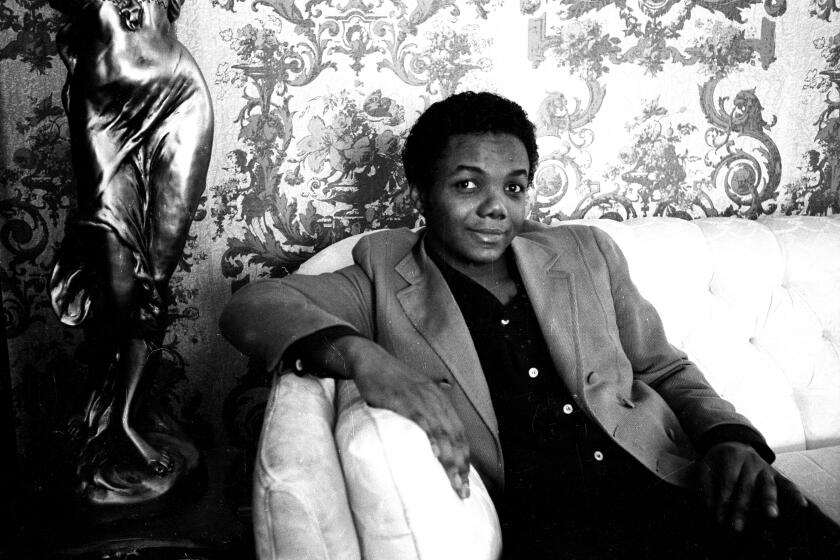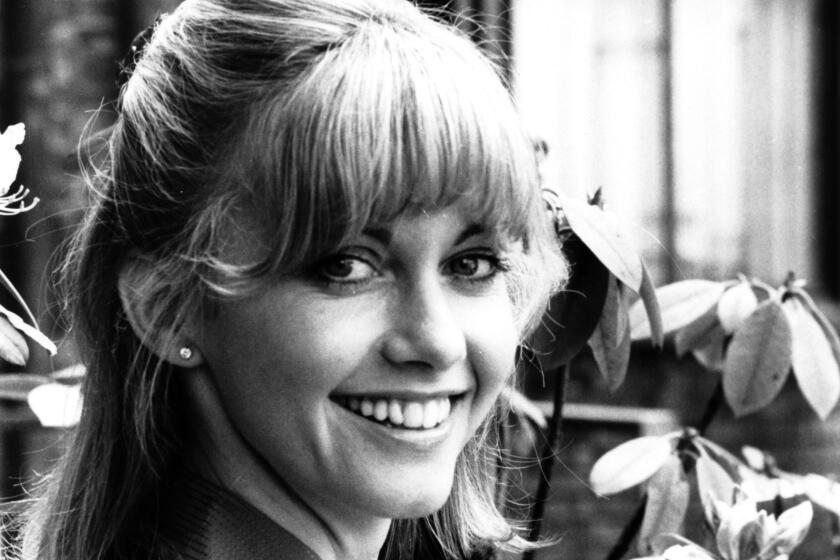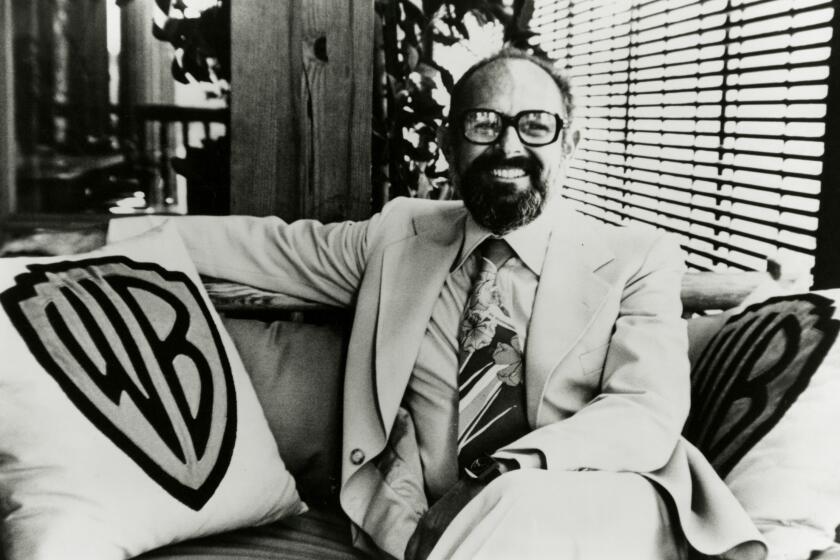Lamont Dozier: An appreciation of a song craftsman who wrote hits with heart and soul
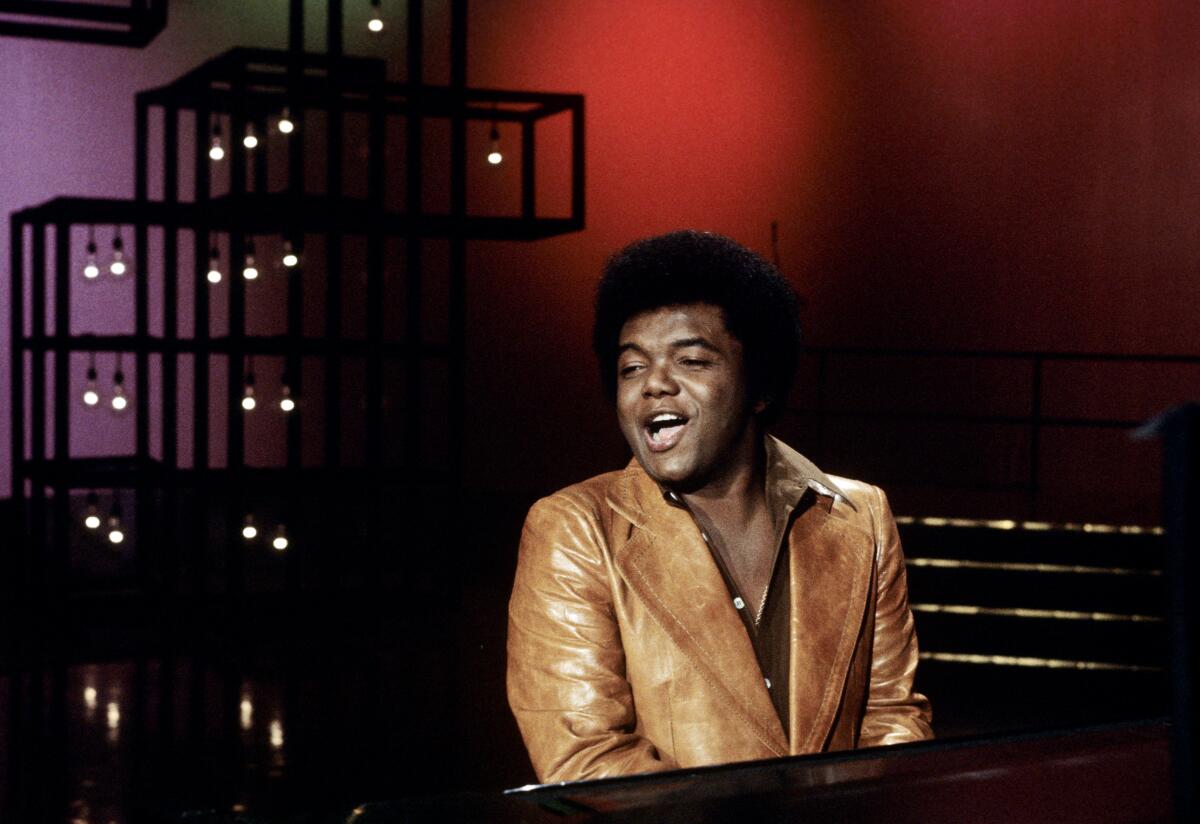
Lamont Dozier was in his downstairs home studio, singing “My World Is Empty Without You,” the classic Diana Ross and the Supremes hit he had composed with his Motown partners Eddie and Brian Holland. He was in mid-song when the unexpected happened.
The legendary songwriter’s voice cracked and he became choked up. Although he had written the song and had sung it himself hundreds of times, he became overcome, so much so that he couldn’t finish.
“The song was just pouring out of me, and then all of a sudden the emotion took over,” Dozier explained during a 1999 interview in his spacious home. “It was overwhelming, and I had to regroup. All these memories just rushed in, of the people and friends who are no longer with us. Marvin Gaye. [The late Supreme] Florence Ballard. Some of the Temptations. ... I just had to have the engineer stop the tape.”
Dozier, who died Monday at age 81, helped create some of the best-loved songs in music history. If you think you know all his classics, though, think again.
At the time, Dozier, who died Monday at the age of 81, was deep in recording his album “Reflections Of...” Released in 2004, it put Dozier’s own personal stamp on the iconic R&B songs that he and the Holland brothers had written for Gaye, the Supremes, the Four Tops, the Temptations, Martha Reeves & the Vandellas and other top Motown artists. The trio was at the center of turning the Motown label into a cultural juggernaut that would revolutionize American pop music.
And although Dozier in the late 1990s was decades removed from the heyday of Motown and had parted ways with his partners, the eruption of emotion in the making of the project demonstrated his ongoing personal connection with songs such as “Baby Love,” “Where Did Our Love Go,” “Baby I Need Your Loving,” “You Can’t Hurry Love,” “Reach Out, I’ll Be There,” “How Sweet It Is (to Be Loved by You),” “Stop! In the Name of Love,” “Love Is Like an Itching in My Heart,” “Heat Wave,” “Nowhere to Run,” “Bernadette,” “It’s the Same Old Song” and many other classics.
For people growing up in the ’60s and ’70s, it is impossible to imagine growing up without those tunes pouring out of our transistor radios or watching kids dance to them on “American Bandstand” and other teen shows. Those songs were essentials, transforming those Motown artists into international superstars and national heroes. But it was the craft and genius of the songwriting that made Dozier into one of my heroes.
From country to disco, Newton-John sounded persuasive in a variety of settings, her voice providing a sultry undercurrent to her songs’ gentle promises.
The power and universal vibrancy of those songs also resonates with today’s musicians. L.A.-based hip-hop artist and spoken-word poet D. Zimm, 33, has listed Dozier alongside RZA, J. Cole, Gang Starr and Jimi Hendrix as among his major influences.
D. Zimm said he discovered Dozier while listening to older music on Spotify. “I went through his entire discography for a week, and every track had a section that I would want to chop for a sample. One of my favorite songs is ‘Shine’, the intro track on his [1974] solo album, ‘Black Bach.’ I really appreciate his artistry and thoughtful sound.”
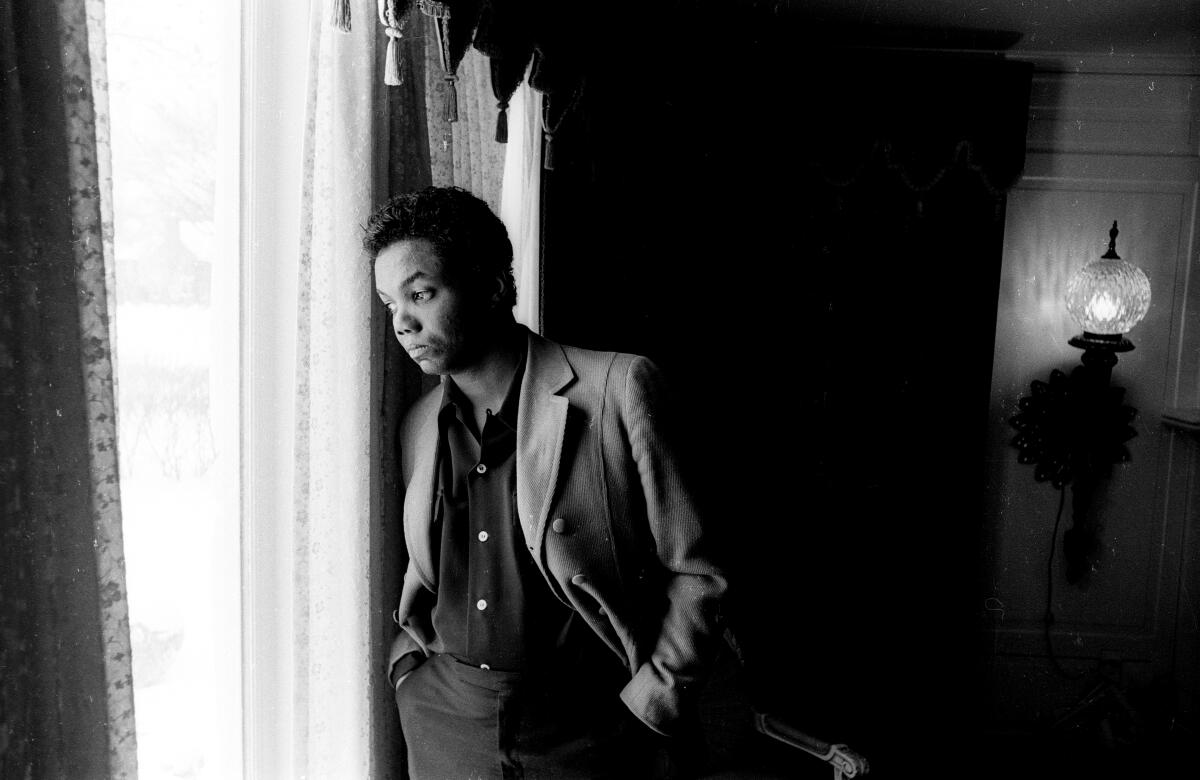
Providing hummable and dancing illustrations of the exhilaration of love was central to the Holland-Dozier-Holland oeuvre. But their uncanny ability to lay bare the devastation of heartbreak and romantic breakups while giving it earworm hooks was their superpower.
“Let me get over you the way you’ve gotten over me,” Ross begs in “You Keep Me Hangin’ On,” punctuating her hurt with a plea: “Go on, get out, get out of my life and let me sleep at night.” The cut is even deeper in the psychedelic-flavored hit “Reflections”: “In you I put all my faith and trust. Right before my eyes, my world has turned to dust.”
One of their most vivid expressions of heartache appeared in the Four Tops’ “7 Rooms of Gloom” when lead singer Levi Stubbs wails, “All the windows are painted black. I’ll wait right here ‘til you come back. I keep waiting waiting, ‘til your face again I see.” I’ve had a few breakups where those lyrics precisely summed up my despair. It’s only common sense that kept me from busting out the black paint.
The power of Dozier’s songwriting carried into his solo career, where he recorded several albums beginning with his 1973 debut album “Out Here on My Own.”
In the single “All Cried Out,” on “Black Bach,” he taunts a former abusive lover with the news of a new romance: “Since the day you left me, I’ve been on the wagon. The new love I found keeps me braggin’. I’ve got a new way to walk, a new way to talk. A new way to smile. A brand new style.”
Warner Bros.’ Mo Ostin, who died Sunday at 95, was among the greatest executives of the rock era, and loved by artists from Sinatra to Prince.
He was the writer and producer in 1988 of “Two Hearts,” the smash hit for Phil Collins that appeared in the 1988 movie “Buster,” which won a Grammy and Golden Globe and received an Oscar nomination.
It was that brilliance of Dozier and his accomplishments that led me to his large Encino house in 1999. He was one of several legendary songwriters involved in “Shake, Rattle & Roll,” a CBS miniseries that used the evolution of rock ‘n’ roll and the civil rights movement as a backdrop for the love story of a young couple during the 1950s and ‘60s.
At the time, he was still embroiled in a bitter and long-standing legal fight with Motown and the company’s founder, Berry Gordy Jr. Dozier and the Hollands maintained they were cheated out of hundreds of millions of dollars because they had not been paid a significant royalty rate for the songs, which had been endlessly repackaged in boxed sets and other compilations. Attorneys for Gordy and Motown called the lawsuits and charges a “farce” and part of a “vindictive campaign of harassment.”
Said Dozier: “It’s been very costly and painful. But I can’t blame the music. A lot of people would have gotten bitter, but I will continue to do the music. It’s a gift from God, and it will always live.”
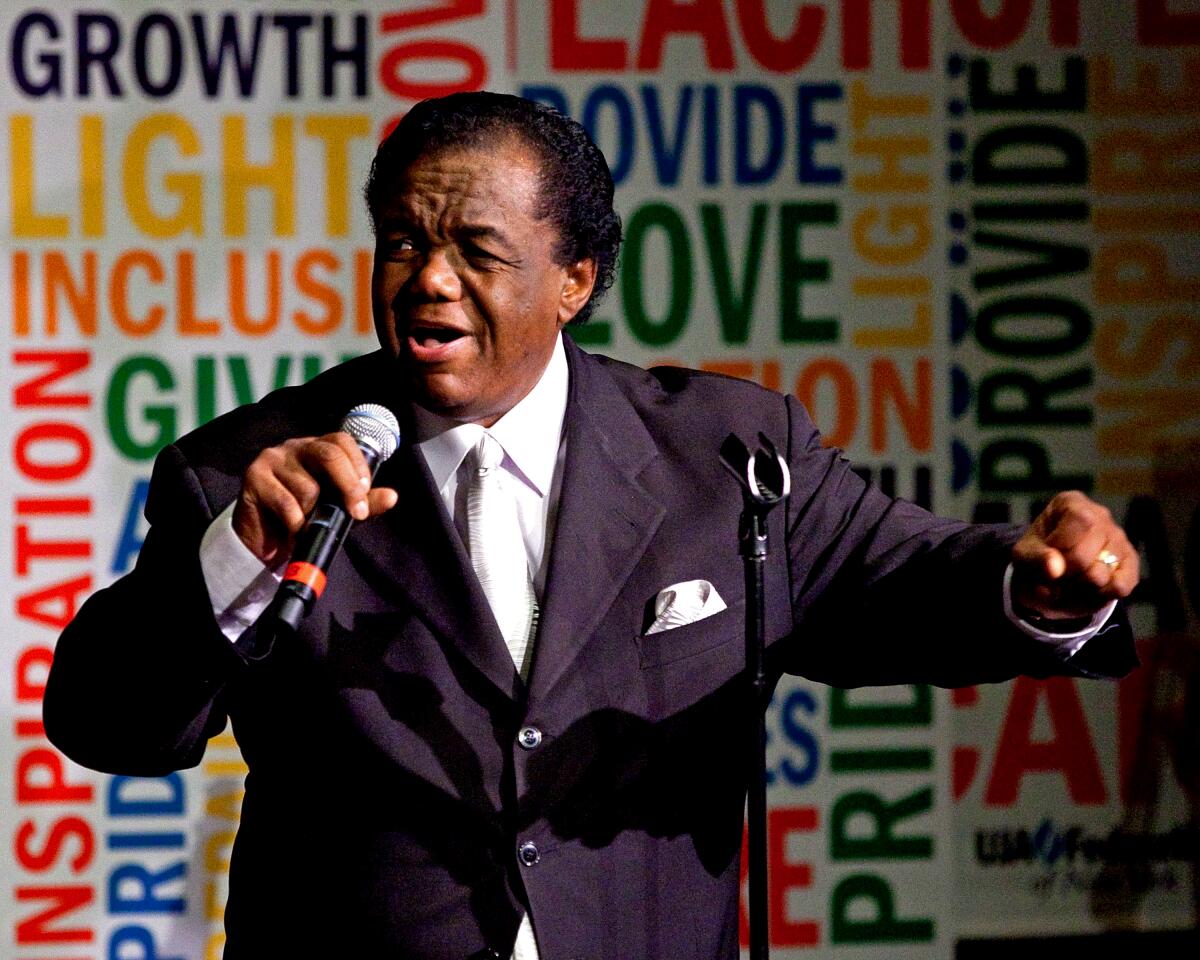
He had met resistance from major labels who showed more interest in his older work than new material. But he had no interest in being a nostalgia act. He was determined to lay claim to his legacy while also moving forward with new creative endeavors.
“It’s taken me a long time to get to this place where I can concentrate on today and live for what’s happening now,” said Dozier while relaxing in his living room. “I certainly don’t take for granted what I did before. But I try not to dwell on the things of yesterday.”
Recording the new album, called “Reflections,” would give this music a new face. He wanted to perform the songs to the way he originally conceived them — as love-struck slow ballads.
“Everybody in the business has done these songs at one time or another, but no one has heard how they were originally created,” Dozier said. “Most of them started out as ballads. They will have more of a melancholy feeling, soft and sweet.”
I was then stunned when Dozier closed his eyes and starting singing in a voice that sounded as if his heart were breaking: “Baby love, my baby love, I need you, oh, how I need you.” It sounded as if his heart was breaking. Opening his eyes, he smiled and launched into a tempo closer to the Supremes rendition: “Babylove, my Babylove. . . .”
More to Read
The biggest entertainment stories
Get our big stories about Hollywood, film, television, music, arts, culture and more right in your inbox as soon as they publish.
You may occasionally receive promotional content from the Los Angeles Times.
